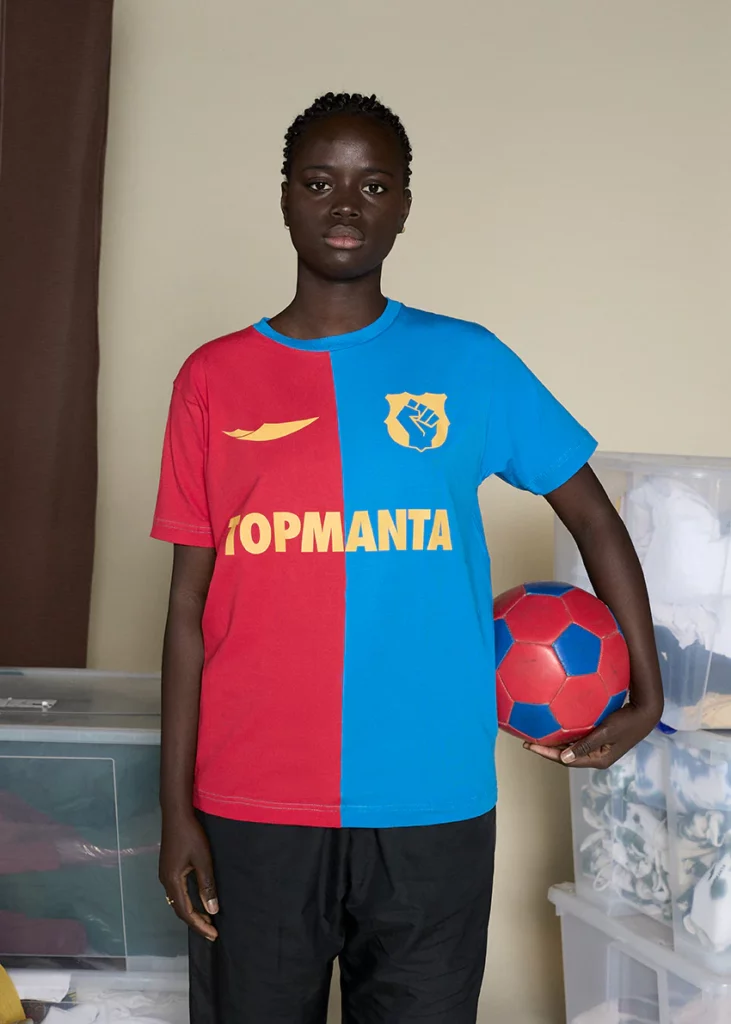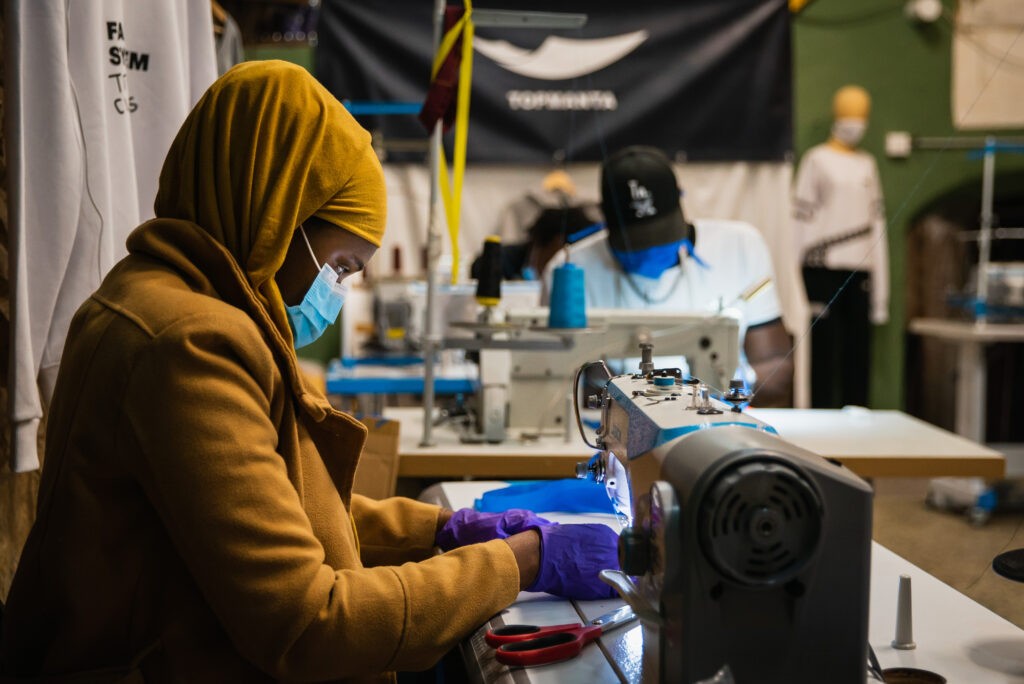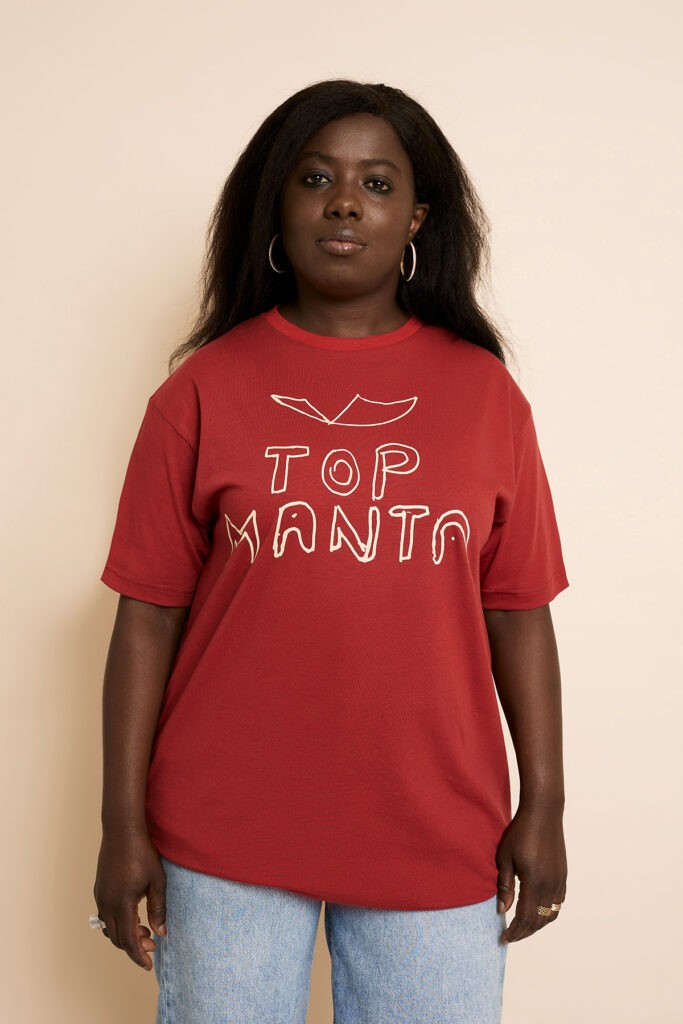Undocumented migrants arriving in Spain with hopes for a better life get trapped into a life of informality. Their undocumented status prevents them from accessing jobs in the formal economy, and, as a result, they cannot get healthcare or contribute to the social security system.
According to the International Labour Organization’s Recommendation 204 on the Transition from the Informal to the Formal Economy, “most people enter the informal economy not by choice but as a consequence of a lack of opportunities in the formal economy and in the absence of other means of livelihood.”
The majority of undocumented migrants arriving in Spain end up working as farm labourers, scrap dealers or street vendors.
“None of these are easy,” says Lamine Sarr, a former street vendor, who co-founded the Barcelona Street Vendors’ Popular Union (Sindicato Popular de Vendedores Ambulantes) to support migrants in 2015.
“The problems the vendors have is to find work. If they come here without documents they cannot get employed, so informal work is the only option,” Sarr adds. “Without a work contract they cannot acquire a home. And then they cannot acquire work without an address. And they cannot contribute to the social security system.”
In 2017 the union set up Top Manta, a co-op that sells clothes, accessories and sportswear made by migrants. In doing so, it aims to improve the living conditions of the vendors and take them off the streets. Getting started was difficult, particularly due to the lack of access to capital but the co-op was able to raise €77,000 to launch its clothing brand through a crowdfunding campaign.

The brand’s name comes from “manta”, which means blanket, something street vendors, who are referred to as “manteros” in Spanish and “manters” in Catalan, use to sell their products.
The Top Manta logo is a blanket that has the shape of a boat, a symbol of the migrants’ journeys to Spain and their informal work.
By launching their own brand, the street vendors wanted to reclaim the narrative around their activity. According to a 2021 report by Red Acoge, a federation supporting migrants and refugees, 20% of the information on migration analysed in Spanish media contained terms such as “wave”, “invasion” or “assault”. The same report also found that more than 80% of press reports failed to include migrants’ voices, and were predominantly based on institutional and political sources.
Feeding into this narrative is the fact that street vending without an allocated pitch is not permitted in Spain. Street vendors, who tend to operate in tourist areas, sell a range of products, including souvenirs, football t-shirts, footwear and sunglasses. Some street vendors also sell copies of branded products, which is not allowed due to copyright laws. This means vendors can be asked to pay fines or charged with crimes.
Sarr says the co-op’s work of formalising street vendors has helped to change how society views street vending in general.

“We have achieved a lot,” he explains. “We were able to gain the respect of society, when we talked about ‘top manta’ – they associated it with delinquency and now society views us differently.”
This was particularly evident during the pandemic when Top Manta stepped in to produce masks and robes for local hospitals. Dozens of volunteers affiliated to the union helped to produce masks and robes. More than 14,000 products were distributed for free to vulnerable people and Catalan hospitals, with funding for the project coming from donations.
Street vendors were also among the most impacted by the pandemic, with lockdowns prevented them from returning to the streets. Without access to social security or an income, they struggled to provide for their families. Top Manta sought to address this by launching a food bank, through which it supported 400 families.
“The project is not just a marque to sell, we support people as well by providing a range of social services,” says Sarr, adding that the food bank continues to support migrants and their families.
To date, the union has helped 200 undocumented migrant workers acquire work and get trained in sewing, embroidery and serigraphy. The co-op itself employs 15 people and has seven members, four of whom are the initial founders.

Top Manta products are sold at its Barcelona store on as well as via an online website which attracts customers from around the world, including the USA, Portugal, Germany, Italy, and the UK.
Products sold include T-shirts with the message “Migration is not a crime” and “antiracist”.
Spain reported 2,300 hate crimes in 2023, 21% more than in the previous year. Around 41% of these crimes were based on racism and xenophobia.
“Racism is something we experience every day – not just selling on the streets, but even taking the metro,” says Sarr. “And this is not just a reality for street vendors but all black people in Spain.”
Last month, Top Manta launched a new collection themed “Fake system, true people,” with which it called for tackling social exclusion and providing opportunities for all.
“As long as some people have so much and others so little, we will continue to live in a violent way of life, which confronts and condemns many people to social exclusion. We, as migrants and people of color, know that the system is broken and that another way of doing things is possible. We believe in a system that includes everyone,” it said in an email promoting the new collection.
The co-op has big ambitions, hoping to continue to grow the business to be able to employ more people.
“Top Manta is a symbol of fighting and solidarity because we were able to cope with difficulties such as Covid-19,” says Sarr.

